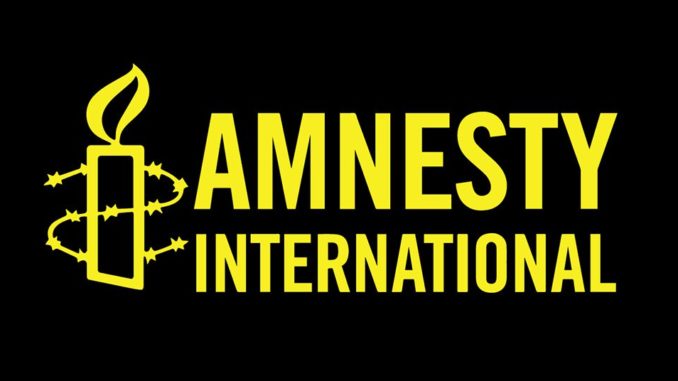
Amnesty International (AI) on Tuesday raised the alarm that insecurity was escalating in northwest Nigeria’s Zamfara state, with daily killings and kidnappings by armed bandits, leaving villagers in constant fear of attack.
Revealing the atrocities by the attackers, AI said thousands of people have been displaced by a conflict which began in 2012 as a result of clashes between farmers and herders.
“This is Nigeria’s forgotten conflict. The authorities’ failure to act has left villagers in Zamfara at the mercy of armed bandits, who have killed hundreds of people over the course of two bloody years,” said Osai Ojigho, Director of Amnesty International Nigeria.
“When we visited the region, villagers told us that they had pleaded with the government to help them after receiving warning letters from the bandits ahead of attacks but had received no protection. The Nigerian authorities have repeatedly claimed to be tackling the situation, but the mounting death toll tells a different story.”
President Muhammadu Buhari had on Sunday deployed troops to Zamfara state to tackle insecurity bedevilling the rural communities.
Giving details, Amnesty International recalled that on Friday 27 July, 18 villages in the Mashema, Kwashabawa and Birane districts of Zurmi local government area of Zamfara state were attacked, leaving at least 42 people dead.
“At least 18,000 residents of the affected villages who were displaced over the weekend are now taking refuge at various locations in the local government headquarters. The following day a further 15 people were kidnapped in Maradun local government area.
“On Saturday 28 July, President Muhammadu Buhari announced the deployment of 1,000 troops to Zamfara. This is the third time since November 2017 that the authorities have deployed the military in response to attacks, but villagers told Amnesty International that this has not translated into protection for remote, vulnerable communities.
“Previous military interventions have failed to end the killings, especially in rural areas of Zamfara. At least 371 people have been killed in Zamfara in 2018 alone, and at least 238 of these killings took place after the deployment of the Nigerian air force. The government is still neglecting the most vulnerable communities in this region,” said Osai Ojigho.
Ojigho added that between Sunday 7 and Thursday 12 July, Amnesty International visited communities in five local government areas of Zamfara state – Zurmi, Maradun, Maru, Anka and Tsafe.
“Although security forces were present in the state capital Gusau, researchers saw soldiers and air force personnel in only two of the villages they visited, Birane and Bagega.
“Villagers described feeling helpless and on edge, constantly bracing themselves for attacks. Men said they are sleeping outside their homes and in trees as a way of keeping vigilant, while women and children are sleeping together in groups for protection.
“Villagers described a pattern where they receive warnings ahead of attacks, including by phone, ordering them to pay huge sums of money or be killed or abducted.”
A villager from Gidan Goga was quoted as saying: “Before Ramadan, the bandits called with the same number they called me with two weeks ago and said if we didn’t pay them N500,000 (USD $1400), they would come and kidnap me or the village head. Right now, we are living in fear.”
Another village elder from Gidan Goga also told Amnesty International: “We cannot go to farm far from our village. Two weeks ago, I got a call from one of the bandits, saying they are the ‘owners’ of the forest. He asked me to tell the village head to tell all villagers close to the forest to vacate the villages and come here, Gidan Goga. He said the only way they’d allow the villagers to continue staying was if they paid them five million Naira.”
In a village in Maru, villagers said the only time they see security forces is when they are escorting workers to the state governor’s farm.
Ojigho further disclosed that senior police officer in Zamfara told Amnesty International that security agencies lack logistics and manpower to deal with the crisis.
©Daily Post
